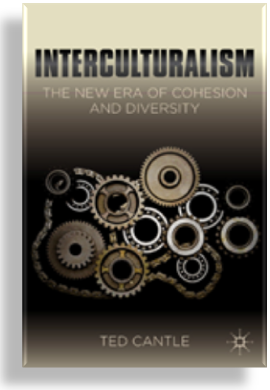Available from 14 September 2012
 In his new book, Ted Cantle expounds the idea of ‘interculturalism’ which recognises the interdependence of people and their countries and suggests that different forms of integration are now necessary to foster an inter-connectedness in which ‘race’ will no longer play a significant part and be eclipsed by broader ideas about difference and otherness.
In his new book, Ted Cantle expounds the idea of ‘interculturalism’ which recognises the interdependence of people and their countries and suggests that different forms of integration are now necessary to foster an inter-connectedness in which ‘race’ will no longer play a significant part and be eclipsed by broader ideas about difference and otherness.
‘A lucid account from the front line of one of Britain’s most important policy debates.’ – David Goodhart, Director of think tank Demos, UKTen years ago Ted Cantle founded the idea of community cohesion and this concept began to transform the way we think about race and diversity in the UK and has been copied and adopted by many other countries, especially through the idea of intercultural dialogue. Despite the growth of the Far Right and continual opposition to migration, 85% of people in England now say that they now get on well with people from other backgrounds – testimony to the great work done on cohesion at the community level.

But the ghost of multiculturalism hangs over progressive debates. And the new phase of ‘super diversity’ created by globalisation and the transnational movement of people and communications on a new scale, demands a new approach. All modern societies are now multicultural – and destined to become more so – yet the ideology of multiculturalism cannot mediate the changes which people both enjoy and fear
All western societies are now grappling with the idea of multiculturalism. It no longer enjoys political nor popular support. No politician will be its advocate and at a popular level it invites general cynicism and even derision. But we do need a new way of thinking about how we live together in an increasingly globalised world in which complex and multi-faceted identities are fast becoming the norm. Interculturalism could provide a new and positive perspective for the future of social relationships.
Publishing by Palgrave Macmillan, 14th September 2012 in paperback, priced £19.99.